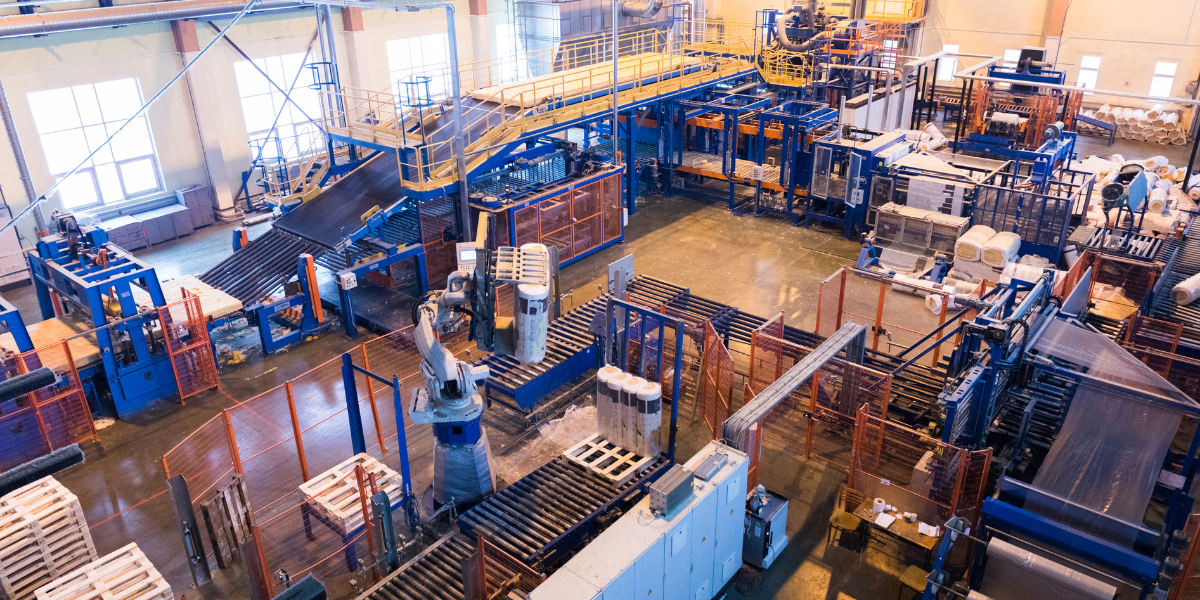
Manufacturing Industry in Dubai
Dubai, renowned for its iconic skyline and global business hub status, has rapidly evolved into a diversified economic landscape. One of the key pillars supporting this transformation is the robust manufacturing sector. Dubai, part of the United Arab Emirates (UAE), has developed into a major business hub and economic center. While it is well-known for its service and tourism sectors, it also has a growing and diverse manufacturing industry.
Top Manufacturing Industries In Dubai
Aluminum and Metal Industries: Dubai is home to several aluminum smelters and metal fabrication units. Emirates Global Aluminum (EGA) is one of the largest aluminum producers in the world and has a significant presence in Dubai.
Petroleum and Petrochemicals: The UAE has a well-established petroleum and petrochemical industry. Dubai contributes to this sector through refining activities and the production of various petrochemical products.
Plastics and Packaging: Dubai has a thriving plastics and packaging industry, producing a wide range of plastic products and packaging materials. This industry serves both local and international markets.
Construction and Building Materials: With the construction boom in the region, Dubai has a robust construction and building materials industry. This includes the production of cement, steel, glass, and other construction-related materials.
Food and Beverage Processing: Dubai has a growing food and beverage processing sector, including the production of packaged food, beverages, and agro-processing activities.
Textiles and Apparel: The textile and apparel industry in Dubai involves the manufacturing of textiles, clothing, and fashion products. It caters to both domestic and export markets.
Electronics and High-Tech Manufacturing: Dubai has been investing in developing a high-tech manufacturing sector, including electronics manufacturing. This includes the production of electronic components and devices.
Pharmaceuticals: The pharmaceutical industry in Dubai has been expanding, with the production of pharmaceuticals and healthcare products.
Aerospace and Aviation: Dubai has made significant strides in the aerospace and aviation industry, including the manufacturing of aircraft components and maintenance services.
Shipbuilding and Maritime Industries: Dubai has a growing maritime industry, including shipbuilding, repair, and maintenance activities.
Steps to Obtain a Manufacturing License in Dubai, UAE
Starting a manufacturing company in Dubai involves a systematic process to secure the necessary approvals and licenses.
Step-by-Step Process:
Business Plan: Develop a comprehensive business plan outlining your manufacturing activities, target market, and financial projections.
Choose a Business Structure: Decide on the business structure—an LLC, Free Zone Company, or Branch of a Foreign Company—based on your requirements.
Select a Business Activity: Clearly define your manufacturing activities to align with the relevant licensing category.
Trade Name Registration: Choose a unique trade name and register it with the Department of Economic Development (DED) or the respective free zone authority.
Initial Approval: Obtain an Initial Approval Certificate from the DED or the relevant free zone authority.
Memorandum of Association (MOA) and Articles of Association (AOA): Draft and submit the MOA and AOA, defining the company’s structure and operations.
Tenancy Contract: Secure a tenancy contract for your business premises in Dubai.
Submit Documents: Compile and submit the required documents, including passport copies, visas, bank reference letters, and NOC if applicable.
Final Approval: After document verification, receive the final approval from the DED or the free zone authority.
License Issuance: Once approved, the manufacturing license will be issued, allowing you to commence operations.
Cost of a Manufacturing License in Dubai, UAE
Starting a manufacturing firm in Dubai often costs between AED 20,000 and AED 30,000, which includes the cost of trade licenses, visas, government clearances, and staffing. Location and other variables, such as industrial activity, may affect the precise quantity.
The cost of obtaining a manufacturing license in Dubai varies based on several factors, including the chosen business structure, type of license, and location (mainland or free zone). It is advisable to conduct a detailed cost analysis covering license fees, visa costs, office space, and other associated expenses.

Documents Required to Open a Manufacturing Company
To streamline the process, gather the necessary documents for company registration in Dubai.
Essential Documents:
- Passport and visa copies of shareholders and key personnel.
- No Objection Certificate (NOC) if required.
- Memorandum of Association (MOA) and Articles of Association (AOA).
- Tenancy contract for business premises.
- Bank reference letters confirming the good standing of shareholders.
- Initial Approval Certificate from the relevant authority.
Activities Covered Under Manufacturing/Industrial License
The activities covered under a manufacturing or industrial license in Dubai encompass a wide range of sectors. Common activities include the production, assembly, and manufacturing of goods, machinery, textiles, and food processing, among others. Ensure your chosen activities align with the approved license category.
Other Article: Dropshipping in Dubai
The future outlook for manufacturing companies in the UAE is promising, driven by several factors.
Future Trends:
Technological Integration: Embrace advanced technologies like automation and smart manufacturing to enhance efficiency.
Sustainable Practices: Increasing emphasis on sustainable and eco-friendly manufacturing processes.
Global Trade Integration: Leverage global trade opportunities through strategic partnerships and export initiatives.
Innovation and Research: Invest in research and development to foster innovation within the manufacturing sector.
As Dubai continues its journey towards becoming a global business hub, manufacturing companies can capitalize on these trends to ensure long-term growth and sustainability.
Starting a manufacturing company in Dubai, UAE, requires careful planning, adherence to regulations, and a forward-thinking approach. By navigating the licensing process diligently and aligning with the city’s vision for the future, entrepreneurs can establish thriving manufacturing ventures in this dynamic and progressive business environment.

